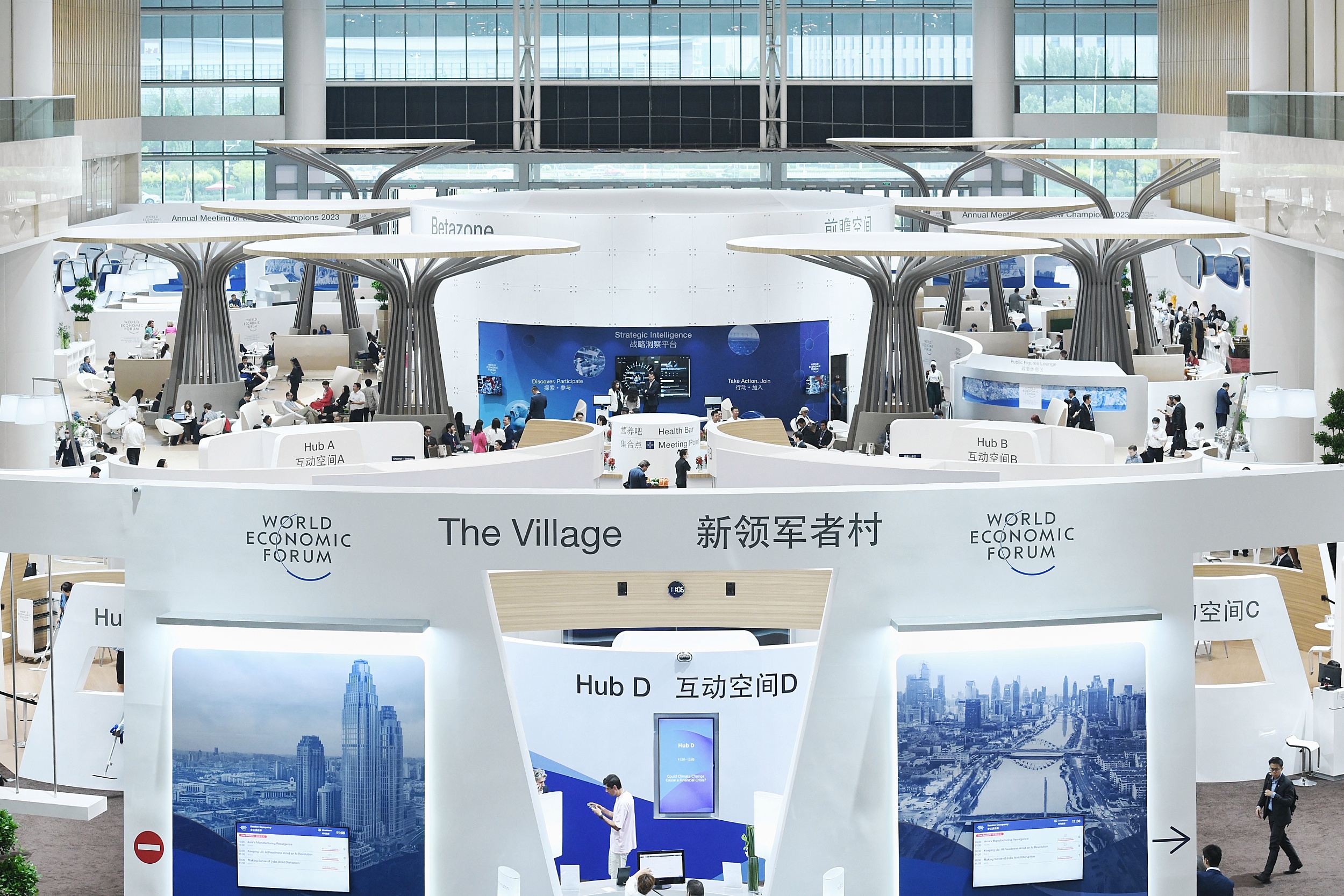China: An Anchor for Economic Recovery

Panoramic view of New Champion Village at 2023 Summer Davos Forum in Tianjin. (PHOTO: VCG)
Edited by QI Liming
Influential leaders from businesses, governments, international organizations, and academia have gathered to discuss China's contribution to the global economy, and share their wisdom in cooperation amid global challenges.
The occasion was the 14th World Economic Forum Annual Meeting of the New Champions 2023 (Summer Davos Forum) held from June 27 to 29 in China's Tianjin.
Win-win cooperation is the answer
Currently, the world is facing multiple global crises of slowing growth, debt risks, climate change and a wealth gap. This year's forum designed its panels and discussion sessions surrounding six pillars of "rewiring growth; China in the global context; energy transition and materials; safeguarding nature and climate; post-pandemic consumers; and deploying innovation."
In his speech at the opening, Klaus Schwab, executive chairman of the World Economic Forum (WEF), called for global efforts to fight fragmentation, and strive for dialogue, understanding and collaboration. "We stand for a future where nations have to work together for the collective well-being of humanity," he said.
"Since we are living in a fractured, fragmented world, the World Economic Forum believes that the most pressing global issues can only be solved by collaborating," said WEF President Borge Brende.
Decoupling and fragmentation is one thing we must avoid, Ngozi Okonjo-Iweala, Director-General of the WTO, said at the Summer Davos.
How to rewire global growth amid crises and fragility? The whole world need to work together to solve challenges, Chris Hipkins, Prime Minister of New Zealand, said at the Summer Davos.
Prime Minister of Vietnam, Pham Minh Chinh warned against decoupling at the Summer Davos in Tianjin, saying decoupling is not going to address global challenges, and that no one country can solve the problems alone.
David Rubenstein, co-founder and co-chairman of The Carlyle Group, said that it's a mistake to think we can decouple from China. Our economies are quite linked and are going to be linked for quite some time. "I think it's unrealistic to think we're going to be able to decouple in any meaningful way," he added.
Frank Bournois, from the Shanghai-based China Europe International Business School, is convinced that investments in China still make sense. "If we are going with decoupling, we would lose about five percent of growth worldwide."
Boost free trade and stable growth
In small discussion groups, topics such as AI, biotechnology and the market for healthcare were considered. "Seventy percent of global economic growth came from Asia last year," was the comment made at a WEF press conference. China is responsible for a large part for that. The technologies of the future offer more potential for growth in China.
Keyu Jin, professor of economics at the London School of Economics, said that China is embracing a higher-quality growth model supported by sustainable development and technological information. This has shifted China's development from simply pursuing GDP growth to more multi-dimensional goals, such as ecological environment, people's well-being, and food security.
Schwab said the WEF highly appreciates the important contributions China has made to anchoring for global economic growth, and promoting global poverty reduction. "The whole world has benefited from China's development," he said. Looking to the future, he pointed out that participants are eager to learn more about China's long-term development strategy, solutions to challenges, opening-up policies and opportunities for global businesses.
Businessmen and investors also gave their own professional opinions and analysis towards China's economy.
Rubenstein, who is one of the personal investors in the Sequoia Capital China fund, disclosed that investment firms in China are doing reasonably well. Meanwhile Luca Verre, Co-founder and CEO of Prophesee, said, "We have confidence in the transformation of China's economy, and the digital economy is expected to become a new round of growth engine."






